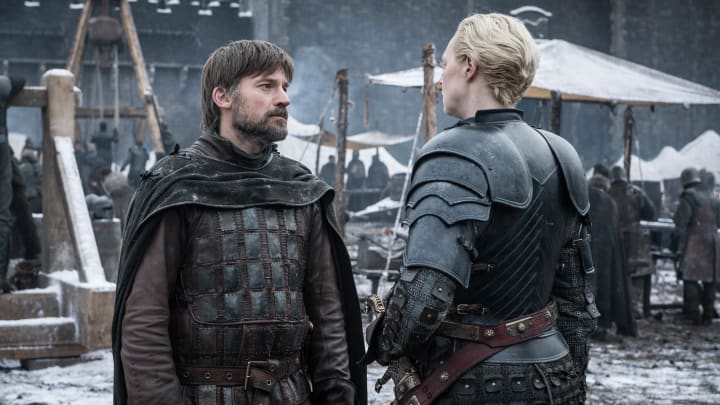Game of Thrones writer explains (secondhand) why they cut Lady Stoneheart
By Dan Selcke

The most famous scene on Game of Thrones is the Red Wedding, a brutal event when several of our heroes — including Catelyn Stark and Robb Stark — are brutally killed during the wedding of Catelyn's brother Edmure to Roslin Tully, daughter of Lord Walder Frey. Walder, who was offended by Robb's spurning of his marriage contract with the Frey household the season prior, masterminded the event, with the support of Tywin Lannister in King's Landing. It's a huge turning point for the show. If you didn't believe that no one was safe before, you do now.
In the pages of George R.R. Martin's A Song of Ice and Fire novels, the Red Wedding has a tail that the show dropped. Beric Dondarrion, who himself had been brought back to life several times already by the red priest Thoros of Myr, finds Catelyn Stark's corpse and breathes life back into her. She arises as Lady Stoneheart, her body already halfway decomposed, her heart hardened. She cares now for nothing but vengeance against the family that killed her and her son.
The show eventually gave some of Lady Stoneheart's duties to Catelyn's daughter Arya, but Catelyn herself stayed dead. Meanwhile, a couple seasons later, Jon Snow was killed and resurrected by Melisandre, a red priestess.
Although we've heard snatches of explanation over the years, we've never gotten an official accounting for why the show chose not to include Lady Stoneheart. Speaking to Polygon about the lasting influence of Game of Thrones, The Wheel of Time showrunner Rafe Judkins recalled how upset he was when he learned that Lady Stoneheart wasn't going to turn up, and what Thrones writer Bryan Cogman told him about why she was left in the ground.
"There’s this character Lady Stoneheart, when Catelyn Stark comes back from the dead," Cogman laid out. "And I was obsessed with this character, couldn’t wait to see her on TV, just live and die, step on my throat Lady Stoneheart. And then when she wasn’t in the show I was like, Bryan!! How could you not do Lady Stoneheart? And he explained it, and it is the correct decision that they made to not do it — because if they’re going to bring back one character from the dead it has to be the one that matters the most to the overall story of the series. And for me there was still like a small death in it, and sadness in it, and anger in it because I — even though I know it’s the right choice for the show — I’m still upset about it."
This still isn't an official explanation direct from someone involved in the show, but a secondhand explanation from a series writer is still worth something. So according to Judkins' remembrance of Cogman's explanation, they refrained from reviving Lady Stoneheart because they thought that would reduce the impact of another resurrection they were planning for the future, very likely Jon Snow's.
Personally, I was entirely behind this decision; I wasn't overly attached to Lady Stoneheart and agree that the fewer resurrections Game of Thrones had, the more grounded it felt. And the more grounded it felt, the easier we could believe the fantasy elements that were there, and all would prosper.
But obviously, mileage will vary. Seeing this play out helped Judkins when he adapted The Wheel of Time for the screen, which required him to make plenty of changes of his own. "So, watching the show was a very good experience for me, and understanding the fundamentals of how people who love the source material are going to react to it," he said. "And the fact that no matter what you do, you can’t actually make everyone happy. So what you have to do the most is treat the story with respect and do everything you can to bring it to the screen in the best way possible that honors what was there."
Next. Shōgun showrunner explains how they decided to continue the show for seasons 2 and 3. Shōgun showrunner explains how they decided to continue the show for seasons 2 and 3. dark
To stay up to date on everything fantasy, science fiction, and WiC, follow our all-encompassing Facebook page and Twitter account, sign up for our exclusive newsletter and check out our YouTube channel.